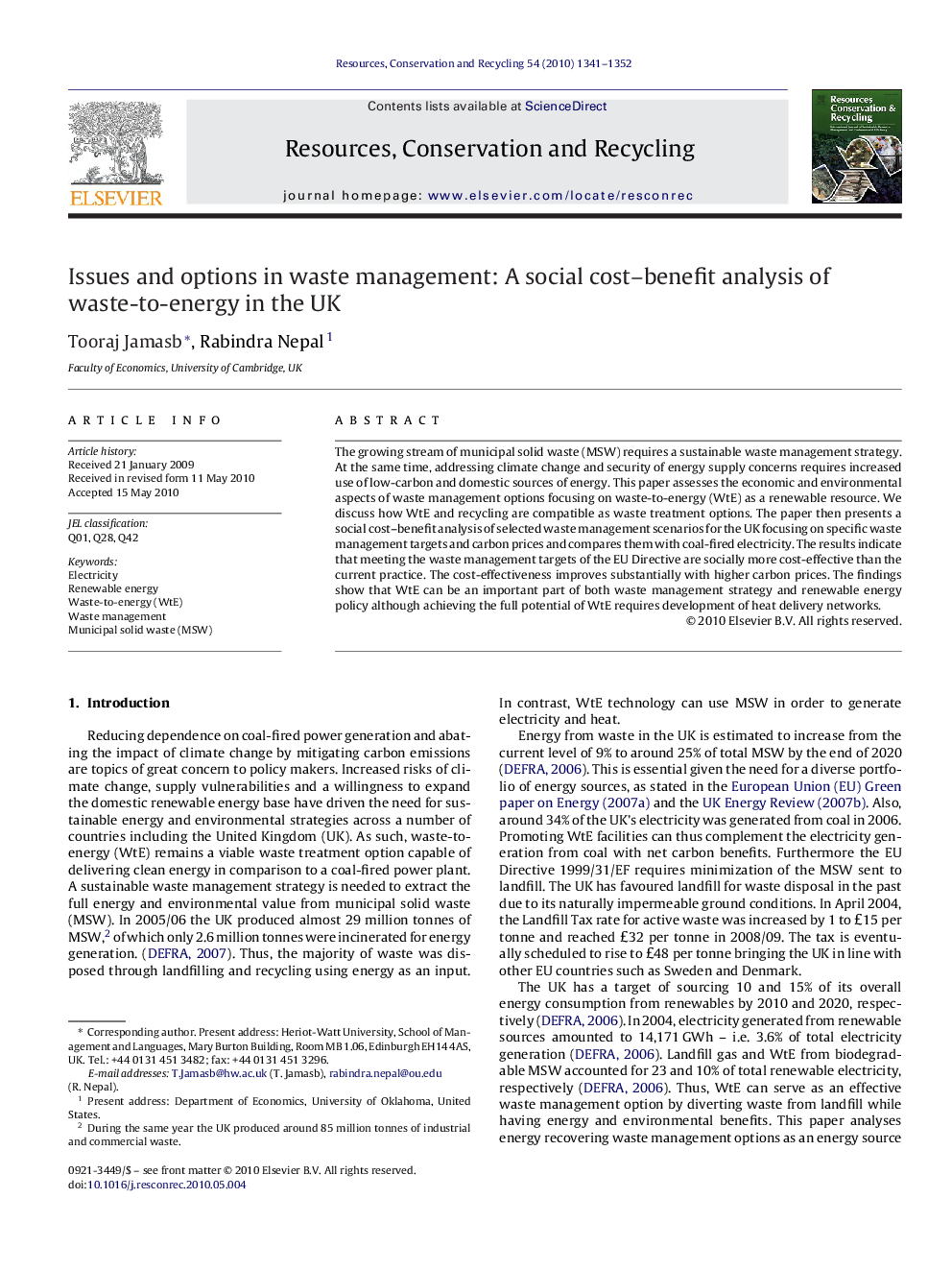| Article ID | Journal | Published Year | Pages | File Type |
|---|---|---|---|---|
| 1063823 | Resources, Conservation and Recycling | 2010 | 12 Pages |
The growing stream of municipal solid waste (MSW) requires a sustainable waste management strategy. At the same time, addressing climate change and security of energy supply concerns requires increased use of low-carbon and domestic sources of energy. This paper assesses the economic and environmental aspects of waste management options focusing on waste-to-energy (WtE) as a renewable resource. We discuss how WtE and recycling are compatible as waste treatment options. The paper then presents a social cost–benefit analysis of selected waste management scenarios for the UK focusing on specific waste management targets and carbon prices and compares them with coal-fired electricity. The results indicate that meeting the waste management targets of the EU Directive are socially more cost-effective than the current practice. The cost-effectiveness improves substantially with higher carbon prices. The findings show that WtE can be an important part of both waste management strategy and renewable energy policy although achieving the full potential of WtE requires development of heat delivery networks.
